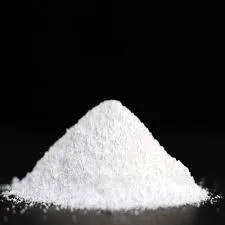The Importance of Sewage Treatment Chemicals in Wastewater Management
Sewage treatment is a critical process that contributes to environmental sustainability and public health. As urban areas expand and industrial activities increase, effective wastewater management becomes increasingly essential. Central to this process are sewage treatment chemicals, which play vital roles in the treatment and purification of wastewater before it is released back into the environment or repurposed for use.
Sewage treatment chemicals can be categorized into several types, each serving specific purposes in the treatment process. The primary chemical agents used in sewage treatment include coagulants, flocculants, disinfectants, and pH regulators. Understanding these chemicals and their functions is crucial for optimizing wastewater treatment processes.
Coagulants are substances that aid in the aggregation of fine particles in the wastewater. They help in the removal of suspended solids, colloids, and other impurities. Common coagulants include aluminum sulfate and ferric chloride. When introduced into wastewater, these chemicals neutralize the charges on suspended particles, leading to their aggregation into larger flocs. This process, known as coagulation, is often the first step in sewage treatment and is followed by sedimentation, where the flocs settle to the bottom, separating cleaner water from solids.
Following coagulation, flocculants are used to enhance the formation of larger flocs. These are typically long-chain polymers that bind with the aggregated particles, increasing their size and weight. Flocculation enhances the effectiveness of sedimentation and aids in the removal of additional impurities. By combining both coagulants and flocculants, treatment facilities can improve the clarity of the effluent, making it more suitable for discharge or reuse.
sewage treatment chemicals

Disinfection is another critical stage in sewage treatment, where disinfectants are applied to eliminate pathogenic microorganisms. Common disinfectants include chlorine, ozone, and ultraviolet (UV) light. Chlorination is a widely used method due to its effectiveness in killing bacteria and viruses. However, it can produce harmful by-products, necessitating careful monitoring and control. UV disinfection, on the other hand, is a chemical-free method that effectively inactivates germs without the risk of harmful by-products, making it an environmentally friendly alternative.
pH regulators are also essential in sewage treatment processes. The pH of wastewater can significantly influence the efficiency of chemical reactions during treatment. Chemicals such as sodium hydroxide or sulfuric acid may be added to adjust the pH to optimal levels, ensuring efficient coagulation, flocculation, and disinfection. Maintaining the appropriate pH balance is crucial not only for the effectiveness of the treatment process but also for protecting the infrastructure of treatment plants and ensuring compliance with environmental regulations.
In addition to these core functions, sewage treatment chemicals contribute to the overall efficiency and effectiveness of wastewater management systems. The proper use of chemical treatments can lead to reduced energy consumption during subsequent treatment stages and improved operational stability. Moreover, advancements in chemical technologies have led to the development of eco-friendly chemicals that minimize environmental impact while optimizing treatment performance.
As we face increasing challenges related to water scarcity and pollution, the importance of effective sewage treatment cannot be overstated. The application of sewage treatment chemicals plays a vital role in ensuring the safe and efficient management of wastewater. By investing in innovative chemical solutions and optimizing existing treatment processes, municipalities and industries can enhance their wastewater management practices, contributing to a cleaner environment and a healthier future for communities globally.
In conclusion, sewage treatment chemicals are indispensable in the wastewater treatment industry. Their ability to clarify water, eliminate pathogens, and maintain optimal conditions for chemical reactions underlines their importance in the quest for sustainable water management. As the world continues to grapple with environmental challenges, continued research and investment in sewage treatment chemicals will be crucial for developing effective and sustainable wastewater management solutions.

